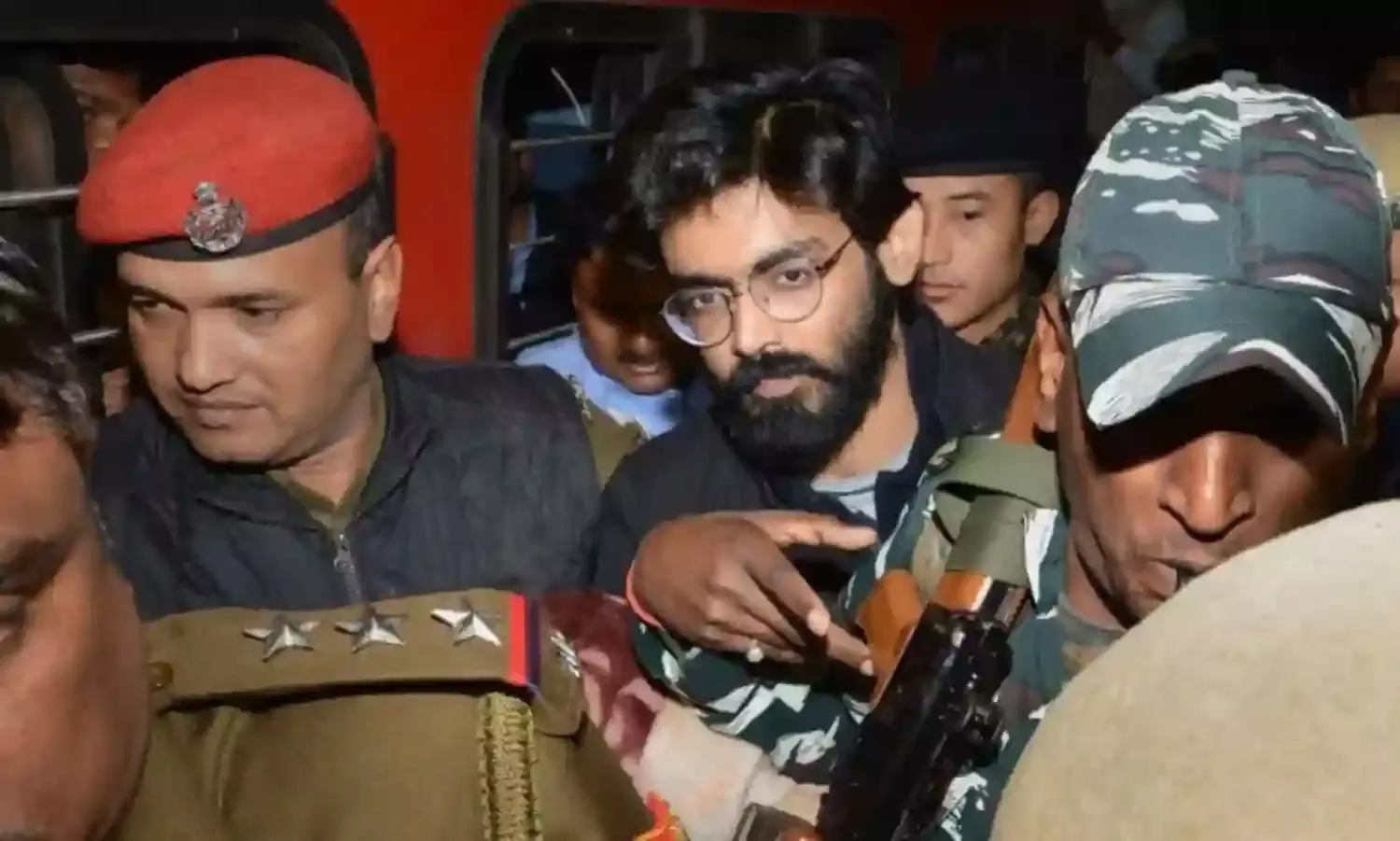Sharjeel Imam Gets Bail in Jamia Case, But Still Faces Delhi Violence Charges
Delhi High Court gives bail to 10 others

In a fresh development, JNU student Sharjeel Imam and 10 others were given bail by a Delhi Court on Saturday in a case connected to the Jamia Millia Islamia violence in 2019.
However, Imam, who is locked up in Tihar Prison will not be coming out soon as he is an accused in the larger conspiracy case of the 2020 northeast Delhi riots.
Additional Sessions Judge Arul Verma discharged them in a case registered at the Jamia Nagar police station in 2019.
Stressing on the fact that “dissent was an extension of fundamental right to freedom of speech”, the Saket district court discharged Imam and 10 others including former Jamia students Safoora Zargar and Asif Tanha among others in connection with the violence, observing that the police managed to rope in the accused persons as “scapegoats”.
The judge said that “it would be pertinent to underscore that dissent is nothing but an extension of the invaluable fundamental right to Freedom of Speech and Expression contained in Article 19 of the Constitution of India, subject to the restrictions contained. It is therefore a right which we are sworn to uphold.”
ASJ Varma quoted Gandhi in his order, “Conscience is the source of dissent “.
“When something is repugnant to our conscience, we refuse to obey it. This disobedience is constituted by duty. It becomes our duty to disobey anything that is repugnant to our conscience,” the court said.
The ASJ also quoted Chief Justice of India Justice D Y Chandrachud’s recent observations that “The destruction of spaces for questioning and dissent destroys the basis of all growth – political, economic, cultural and social. In this sense, dissent is a safety valve of democracy.”
Talking about the CJI’s observations, the court said, “The subtext is explicit i.e. dissent has to be encouraged not stifled. However, the caveat is that the dissent should be absolutely peaceful, and should not degenerate into violence.”
Taking to social media, Tanha sighed a heave of relief. “The court’s order has proved that the students were only protesting under the rights given to us by the Constitution. I would like to thank God, the court, lawyers and my family and all those who have supported me at every step,” he wrote on Facebook.
The judge also noted that the prosecution has “ex facie been launched in a perfunctory and cavalier fashion” against the accused persons, barring the sole accused who was chargesheeted in this case.
ASJ Varma said that to allow the accused persons to “undergo the rigmarole of a long-drawn trial, does not augur well for the criminal justice system of our country”. “Furthermore, such a police action is detrimental to the liberty of citizens who choose to exercise their fundamental right to peacefully assemble and protest,” the court said.
It stressed on the fact that “Liberty of protesting citizens should not have been lightly interfered with.” The judge said that the “desideratum (something that is needed or wanted) is for the investigative agencies to discern the difference between dissent and insurrection.”
“The latter has to be quelled indisputably. However, the former has to be given space, a forum, for dissent is perhaps reflective of something which pricks a citizen’s conscience,” the judge said.
The court said there were admittedly scores of protestors at the site and among the multitude, some anti-social elements within the crowd created an environment of disruption and did create havoc.
“However, the moot question remains: whether the accused persons herein were even prima facie complicit in taking part in that mayhem? The answer is an unequivocal “no”. Marshaling the facts as brought forth from a perusal of the chargesheet and three supplementary chargesheets, this Court cannot but arrive at the conclusion that the police were unable to apprehend the actual perpetrators behind commission of the offence, but surely managed to rope the persons herein as scapegoats,” the order read.
The judge also suggested that the investigative agencies “should have incorporated the use of technology, or have gathered credible intelligence, and then only should have embarked on galvanizing the judicial system.”
“Else, it should have abstained from filing such ill-conceived chargesheets qua persons whose role was confined only to being a part of a protest,” the court said.



